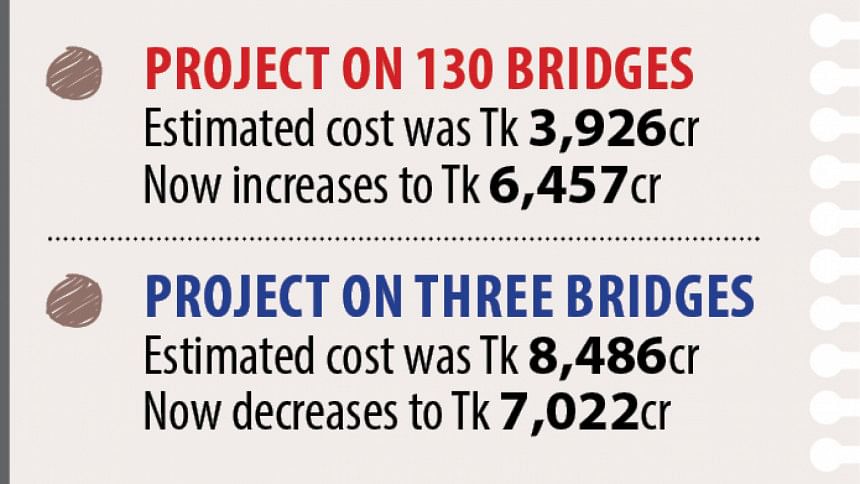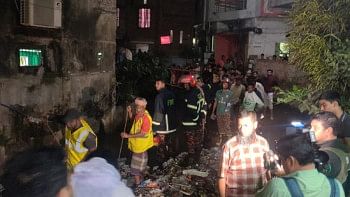Don’t let time and cost overruns be the norm

When a public service agency embarks on a development or communications project based on faulty designs and no feasibility study, it is bound to run into trouble. Throw unchecked corruption, inefficiencies and lack of accountability into the mix, and you have a system where time and cost overruns are virtually guaranteed. While this has been the case with a vast number of projects undertaken by different agencies of the government over the years, there have been a few exceptions too, showing that, with proper planning and implementation, such overruns can be avoided.
A recent report by The Daily Star underscores this point by showing the glaring difference in the implementation approaches of two projects. The first project, undertaken by the Local Government Engineering Department (LGED) in 2017, involves construction of 130 bridges in 94 upazilas to boost the rural economy by creating commercial and employment opportunities, and thereby reducing poverty. But the LGED did not carry out any feasibility study for about 100 of the bridges beforehand, resulting in faulty designs. As a result, only less than 20 percent of the work has so far been completed, although the deadline is June this year. Project officials have now proposed increasing the overall cost by a whopping 64 percent to Tk 6,457.19 crore—an increase of Tk 2,530 crore—and extending the deadline to another three years.
Conversely, another government project, undertaken by the Roads and Highways Department (RHD) in 2013, hasn't just nearly met its deadline but also been able to save Tk 1,464 crore by reducing costs. This is a laudable achievement indeed. Aided by proper planning, prior feasibility studies and smooth implementation, the "Kanchpur, Meghna and Gumti 2nd Bridge Construction and Existing Bridges Rehabilitation Project" promises to increase traffic volume on the Dhaka-Chattogram Highway and establish uninterrupted road communications with the capital.
These two different scenarios show that the future of a project can be fundamentally affected or altered by how it is approached by the implementing authority. We have often seen how large development projects suffer from myriad challenges both before and midway through the projects, and how cost and time overruns are justified by citing various causes, real or made-up. This also means delaying, and even denying, the projected benefits for the target population, as well as a colossal loss of taxpayer's money when the cumulative costs of such failures are counted. All this can be avoided by putting in place a strong accountability mechanism that ensures projects are properly planned and handled, as the second project cited has shown us. We urge the government to institute a system conducive to proper planning and handling of all its projects, so that corruption and inefficiencies are not rewarded and people can benefit from those projects as promised.

 For all latest news, follow The Daily Star's Google News channel.
For all latest news, follow The Daily Star's Google News channel. 



Comments